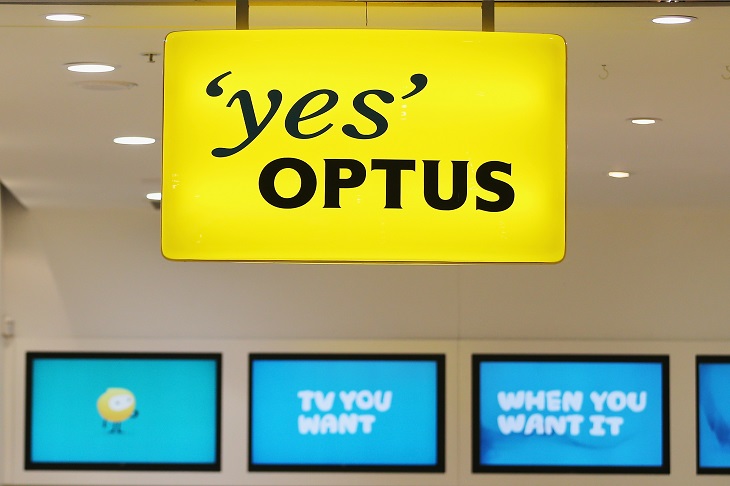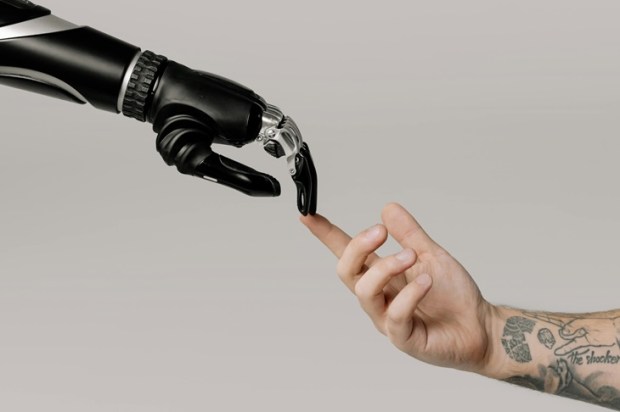Politicians who know nothing about technology continue to bang on about the ‘safety’ and ‘convenience’ of our ‘inclusive’ digital future.
Note: ‘inclusive’ means that there is no option to opt-out.
Their policy roadmaps have us set on a path toward increased government digital surveillance and control by 2030 sold to the public in the interests of ‘convenience’ (for the lazy), ‘safety’ (following the Covid pandemic), and ‘sustainability’ (to prevent the climate apocalypse).
I can tell you with absolute confidence that installing a China-style Digital Identity system will not protect a single person from Covid or make the slightest bit of difference to Earth’s climate.
What these prisons of digital barbed wire will do is fulfil the long-held fantasies of government to micro-manage the economy and manipulate the direction of the private sector.
Actually, scrap that.
There is no private sector when the Big State has the power to restrict the financial interactions of businesses through coercive systems of punishment and reward. Does anyone honestly think an outback steak house can survive with 60 per cent meat taxes, a ban on customers with excessive carbon footprints, and negative social credit scores given to those who buy cow-themed products?
At the very core of the Australian government’s push for a digital future is ‘safety’.
We are being asked to forget that government systems are the most widely hacked of all and have been the cause of many severe and repeated data losses. If they were run by private companies, those companies would have been sued for recklessness and damages.
Ignoring the smouldering pile of systems failure creating its own smoking ceremony in the Canberra archives, politicians keep telling us that the only way to be ‘safe’ in this world is to allow the government to collate a citizen’s important financial, social, biometric, medical, and identifying data into an immense golden honeypot.
Those who think this is a good idea should remember that no matter how much computing power a hacker has available to them – North Korea can’t read the physical paper records inside a locked cabinet.
Telecommunications giant Optus has reminded us of the risk of our digital love affair with a serious and major hacking incident on Thursday that resulted in the theft of high-level customer data for 9.8 million people. The data breach is so severe that most people haven’t got the slightest idea what to do about it. In reality, the vast majority of Optus customers will take no action to protect themselves.
Full names, dates of birth, emails, passport numbers, driver’s licence details, and phone numbers dating back six years were taken – which is enough information to cause significant damage to an individual.
The ABC published comments from a senior figure inside Optus who blamed the incident on human error – a claim that has been refuted by Optus.
It is worth noting that when it comes to government systems, human error is one of the primary causes of sensitive data loss – as is rapidly upgrading digital systems to satisfy over-enthusiastic government policy that is written without consideration for the structure of private businesses.
‘[It’s] still under investigation. However, this breach, like most, appears to come down to human error. [They] wanted to make integrating systems easier, to satisfy two-factor authentication regulations from the industry watchdog, the Australian Communications and Media Authority (ACMA).’
We can bicker all day about how much information tech giants should be allowed to keep (and for how long) and whether entities like real estate agents should be able to request excessive amounts of personal data for rental properties – but at the end of the day, the lesson we should take away from this is one of digital safety and our over-reliance on mass-collated reservoirs of data.
When government systems were built by adults, there was an emphasis on separating data between departments to ensure that the State never came into possession of absolute data authority for an individual. If the government doesn’t store your data in a collectivised manner, hackers cannot steal it. (There is another reason to do with depriving the government of the temptation to misuse private data – something it is leaning into heavily at present.)
In the years since, tech companies and lobbyists have been whispering in the ear of politicians, trying to secure hundreds of millions in government grants to redevelop citizen data structures.
Upgrading archaic databases is one thing – collating data that was separated specifically to protect the public is another question entirely.
While Mark Dreyfus takes the high ground on the Privacy Act to police companies, the government remains committed to creating a worst-case digital scenario for every Australian citizen’s digital future.
Ultimately, it will be the government – not private businesses – that pose the greatest risk to privacy.
Got something to add? Join the discussion and comment below.
Get 10 issues for just $10
Subscribe to The Spectator Australia today for the next 10 magazine issues, plus full online access, for just $10.


























Comments
Don't miss out
Join the conversation with other Spectator Australia readers. Subscribe to leave a comment.
SUBSCRIBEAlready a subscriber? Log in